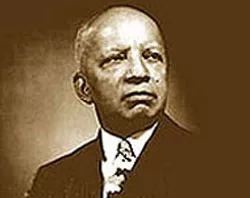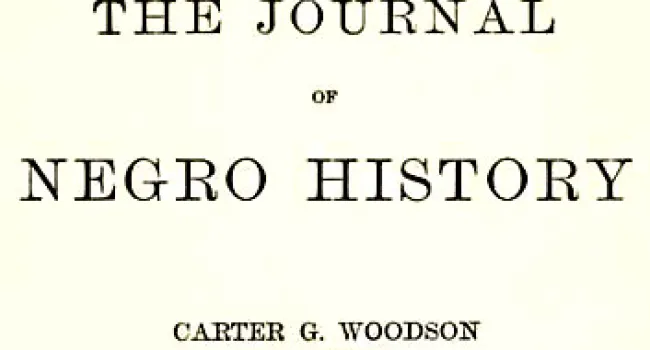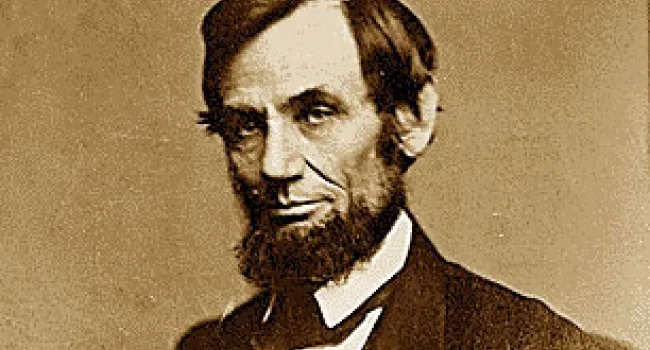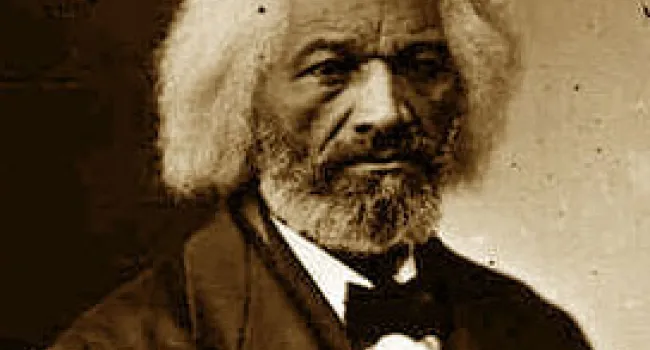
Photo
Carter Woodson, a born scholar, went on to work as a teacher and principal at his old high school. He left in 1903 and taught in the Philippines until 1907. During the next few years, he traveled...
Schools and communities in the United States celebrate African American History Month every February. The formal study of African American history has origins in the work of Dr. Carter Woodson. Because of his books, journals and research he is known as the "Father of Black History." Dr. Woodson's creation of Negro History Week in 1926 evolved into Black History Month.
Dr. Woodson was born in Virginia to freed slaves in 1875. His family was very poor and Carter had to work on a farm to help support them. The only time Carter could attend school was on days that it rained and farming was impossible.
In 1892, 17-year-old Carter moved to Huntington, West Virginia where he hoped to continue his education. In Huntington, he worked in a dangerous coal mine in order to save up money for high school. During this time, Carter taught himself the fundamentals of English and math. After entering high school at the age of 19, he graduated from the four year program in only two years.
Learn about the origins of African American History Month.
Also in this section, please note some important February dates!
en Espanol
Las escuelas y las comunidades de los Estados Unidos celebran la Historia Afroamericano en el mes de febrero. El estudio formal de la Historia Afroamericana tiene orígenes en el trabajo del Doctor Carter Woodson. Debido a sus libros, periódical e investigaciones, él es conocido como el “Padre de la Historia del Negro”. La creación de la Semana de la Historia del Negro por el Doctor Woodson en 1926 evolucionó en el Mes de la Historia Negra.
El Dr. Woodson nació en Virginia en1875 de esclavos libres. Su familia era muy pobre y Carter tuvo que trabajar en una granja para ayudar a mantenerlos. Los únicos días que Carter podía asistir a la escuela eran en los días que llovía y era imposible trabajar en la agricultura.
En 1892, Carter, de 17 años, se mudó a Huntington, West-Virginia, donde continuo su educación. En Huntington, trabajó en una peligrosa mina de carbón con el fin de ahorrar dinero para solventar la escuela secundaria. Durante este tiempo, Carter se enseñó a sí mismo los básicos del inglés y matemáticas. Después de ingresar a la escuela secundaria a la edad de 19 años, se graduó del programa de cuatro años en sólo dos años.
Conozca los orígenes del Mes de la Historia Afroamericana.
En esta sección también tenga en cuenta algunas fechas importantes de febrero.

Photo
Carter Woodson, a born scholar, went on to work as a teacher and principal at his old high school. He left in 1903 and taught in the Philippines until 1907. During the next few years, he traveled...
Photo
"Men of scholarship…must show us the right way and lead us into light, which is shining brighter and brighter." - Carter Woodson The association's goal was to study African American history, publish...
Photo
February 12, 1809: Birth of Abraham Lincoln, leader of the Union Army during the Civil War who wanted to end slavery; the 16th President of the United States.
Photo
February 14, 1818: Birth of Frederick Douglass, former slave and speechwriter who called for freedom of all people.
Photo
February 23, 1868: Birth of W.E.B. Du Bois, author and teacher who worked for civil rights.
Photo
February 3, 1870: 15th Amendment passed, granting right to vote to African Americans.
Photo
February 12, 1909: NAACP founded; became the largest and oldest civil rights organization in America.
Photo
Fifty years apart... February 1926: First Negro History Week observed. February 1976: Negro History Week expanded by Congress to National Black History Month.